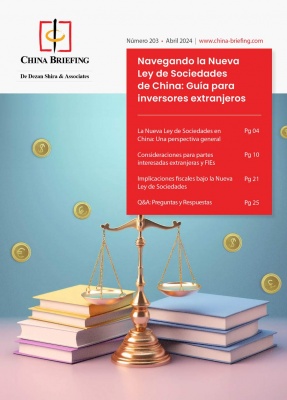Beijing to Commence VAT Pilot Reform in September
Aug. 14 – Beijing will officially commence the pilot conversion from value-added tax (VAT) to business tax on September 1, according to a recent statement posted on the Chinese government’s website. On August 9, 2012, a pilot reform initiation conference was held in Beijing and attended by representatives of Beijing Municipality, the Ministry of Finance, State Administration of Taxation to discuss the detailed implementation of the program.
After Shanghai, Beijing is the second VAT pilot region in China. It is estimated that the VAT pilot reform will involve 138,000 enterprises. Small-scale taxpayers and the majority of general taxpayers in the pilot industries will see their annual tax burden reduced by a total of approximately RMB16.5 billion. However, due to differences among enterprises in terms of modes of operation, developmental stages and cost structures, the changes to their tax burdens may vary; the relevant authorities will consider supporting measures to guarantee the smooth implementation of the reform.
According to the statement, replacing business tax with VAT is an effective way to improve the tax system, avoid duplicate taxation and reduce tax burdens, as well as to promote the coordinated development of the tertiary industry.
It is anticipated that the VAT pilot reform will promote the optimization and upgrading of the capital’s economy, and deepen the reform on a broader scope.
Dezan Shira & Associates is a specialist foreign direct investment practice, providing corporate establishment, business advisory, tax advisory and compliance, accounting, payroll, due diligence and financial review services to multinationals investing in emerging Asia.
For further details or to contact the firm, please email china@dezshira.com, visit www.dezshira.com, or download the company brochure.
You can stay up to date with the latest business and investment trends across China by subscribing to The China Advantage, our complimentary update service featuring news, commentary, guides, and multimedia resources.
Related Reading
 Value-Added Tax Reform
Value-Added Tax Reform
VAT reform is a confusing transition for many and introduces a number of additional questions, such as exactly what types of input VAT are now deductible. Confusion about the new laws may also allow opportunistic companies to charge higher prices and blame the increase on the tax reform. To add some clarity to the issue – and VAT in general – this issue of China Briefing takes a look at a number of VAT-related questions.
Six Key Points Regarding China’s Tax Reforms in 2012
VAT Reform Rates by Service Type
Foreign-Trade Enterprises Can Still Apply for Input VAT Credit Certificates
Ten Cities and Provinces Apply to Participate in VAT Reform Pilot Scheme
China’s SAT Issues Measures for Claiming Zero-Rated VAT
- Previous Article Why I’m Leaving China
- Next Article Mandarin Language Not Essential For China Success
























